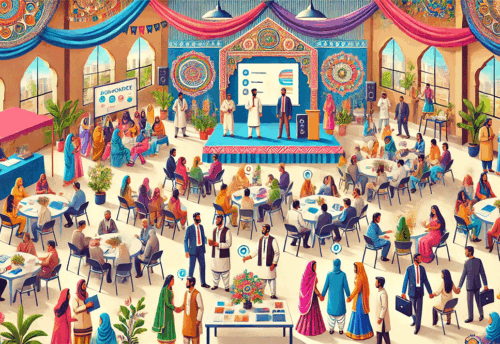
Divorce and Separation in South Asian Communities
Divorce and Separation in South Asian Communities
Divorce and separation remain sensitive and stigmatized topics within South Asian communities. While cultural values emphasize marriage as a lifelong commitment, the reality of marital breakdowns has led to a growing need for understanding, support, and open conversations. Addressing these issues is crucial to fostering healthier relationships and promoting mental well-being.
Stigma and Challenges Around Divorce in South Asian Culture
Divorce in South Asian communities is often viewed through a lens of cultural and societal expectations, which can create significant challenges for individuals going through a marital breakdown.
- Cultural Stigma:
- Divorce is often seen as a failure or dishonor, not just for the individual but for their entire family.
- Women, in particular, face greater scrutiny, with societal pressure to “make the marriage work” regardless of personal suffering.
- The stigma can discourage individuals from seeking separation even in cases of abuse or incompatibility.
- Family and Community Pressure:
- Extended families may prioritize preserving the marriage to maintain social status or avoid gossip.
- Individuals may feel isolated due to a lack of support from family or community members.
- Emotional and Psychological Impact:
- Shame, guilt, and fear of judgment can lead to mental health struggles such as depression, anxiety, and low self-esteem.
- Children in divorcing families may experience confusion and emotional distress, especially if conflicts are prolonged or unresolved.
Support Systems for Individuals Experiencing Marital Breakdown
Support systems are critical in helping individuals navigate the challenges of divorce and rebuild their lives.
- Community and Family Support:
- Encouraging open dialogue within families can help reduce the stigma and provide emotional support.
- Community organizations focused on South Asian issues can offer safe spaces for individuals to share their experiences.
- Legal and Financial Resources:
- Access to legal advice is essential for understanding rights related to property, custody, and financial settlements.
- Financial independence programs, such as career counseling or skill development workshops, can empower separated individuals, particularly women.
- Counseling and Therapy:
- Professional counseling services can help individuals and families process the emotional impact of divorce.
- Support groups for divorced or separated individuals provide a sense of community and shared understanding.
- Cultural Sensitivity in Support Services:
- Services tailored to the unique needs of South Asian individuals, including language support and cultural understanding, are vital for effective assistance.
Encouraging Open Conversations About Mental Health and Well-Being in Relationships
Breaking the silence around divorce and mental health is essential for fostering healthier marriages and supportive communities.
- Promoting Mental Health Awareness:
- Education campaigns highlighting the importance of mental well-being in relationships can reduce stigma.
- Encouraging couples to seek therapy during marital challenges rather than as a last resort can improve communication and understanding.
- Building Resilience:
- Programs focusing on self-care, mindfulness, and stress management can help individuals cope with the emotional toll of divorce.
- Empowering children and families to navigate separation with empathy and support helps minimize long-term trauma.
- Cultural and Religious Leaders’ Role:
- Leaders within South Asian communities can play a pivotal role in normalizing conversations around divorce.
- Advocacy for compassionate approaches to marital breakdowns can encourage acceptance and understanding.





Leave a Reply